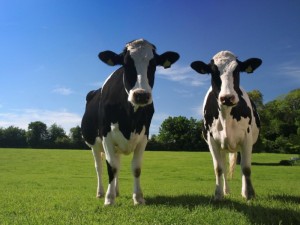The term “Organic” is a generic term used by manufacturers who meet organic standards determined by the USDA. Some general meanings of organic include “of living things” and “derived naturally” although for some organic products those meanings can be highly inaccurate. As long as a hen is fed organic feed her eggs can be labeled organic even though she has never been outdoors let alone pecked the green grass and dirt that gives a pastured egg omega 3’s, antioxidants like vitamin E, as well as lowered cholesterol content. The USDA states that for an animal product to be considered organic it must have “access” to pasture or the outdoors. They do not say how much access in terms of space and time, therefore this loose language allows many organic manufacturers to allow consumers to envision cows and chickens lazily grazing and pecking in green pastures while the reality is quite different. As far as produce is concerned, there is a substantial list of chemicals that can be used on the fruits and vegetables and still be deemed organic. If it is not organic it may be labeled “all natural.” According to the USDA, food can only be labeled natural if it contains no artificial ingredients or added colors and is minimally processed. While limited processing is a good thing, foods such as animal products raised with the use of artificial hormones, genetically modified organisms and even high fructose corn syrup are considered “natural” under current labeling regulations because these products come from a natural source. So how does a consumer get the most nutritional bang for their buck despite the deception? Try to purchase your produce and animal products from local sustainable farms, whenever possible.
- Many local farms allow visitors so you can see for yourself the environment in which the animals are raised.
- Local foods do not travel far for sale so they are extremely fresh and thus do not require chemicals to improve their shelf life.
- Fresher products also mean greater nutritive value. A recent study by the Institute of Food Research showed that most grocery store produce had lost 45% of its nutritive value before it hit the grocery store shelves due to the average two week transit time between picking and delivery.
- Local farms are typically smaller operations so they are more likely to maintain the appropriate amount of animals for the space. When animals have sufficient space they are less likely to become ill and need antibiotics and can follow a natural growth schedule thus do not require growth hormones.
- Sustainable local farmers allow animals to exist in their natural environment. Animals who live in their natural environment consume the foods they were designed to consume. This is important because it greatly affects their nutritive value. A cow that eats grass verses corn has less saturated fat and cholesterol and is higher in antioxidants as well as omega 3’s.
When you find a sustainable farm that treats the earth and their animals as nature intended, I urge you to do all you can to support them. Yes the foods may cost more due to the increased labor it takes to manage a farm this way, but an investment in your health upfront will reduce your medical bills in the years to come!
Research Assistance Provided by: Sarah Volling








Yes this is a tricky subject. Costs of organic food make it difficult to always support organic farms. Perhaps if everyone boycotted stores by not buying their fresh produce, they would try to get the foods to the stores much faster.